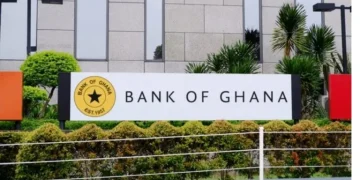IEA Criticizes Planned Sale of Newmont’s Akyem Gold Mine to China’s Zijin Mining as Flawed and Against Ghana’s Interests
The Institute for Economic Affairs (IEA) has voiced strong opposition to the planned sale of Newmont’s Akyem Gold Mine to China’s Zijin Mining Group for $1.0 billion, calling it “flawed in several respects” and detrimental to Ghana’s interests.
The IEA highlighted that the current lease, signed in January 2010, has not yet expired and any sale should be subject to government approval, limited to the unexpired term of the lease. According to the IEA, Newmont is obligated to return the mine to the government upon lease expiry in 2025, meaning any new operator, including Zijin, would need to negotiate a new agreement.
In its assessment, the IEA argues that the transaction could undermine Ghana’s local investment drive, particularly when Ghanaian entities were reportedly outbid by Zijin. This, the IEA claims, contradicts President Nana Akufo-Addo’s earlier statement that priority should be given to local investors in such transactions.
Furthermore, the IEA describes the lease agreement with Newmont as flawed from its inception, akin to “colonial-type” contracts where Ghana reaps minimal rewards from its own resources. It suggests that selling the mine to a foreign company would deprive the country of significant potential revenue that could be better retained by local ownership.
The IEA warned that Ghana risks following a pattern of selling its resources cheaply to foreign companies while depriving itself of the wealth needed for national development. The institute emphasized the importance of Ghana retaining control over its natural resources, proposing a public-private partnership if necessary to purchase the mine, ensuring that wealth generated stays within the country.
The IEA urged the government to adopt a nationalistic approach, similar to Canada’s recent move to limit foreign stakes in critical sectors, to safeguard its economic interests. The institute also proposed a review of the constitutional provisions governing the management of natural resources to prevent future exploitative agreements and ensure that contracts involving the country’s resources are transparent and in the national interest.
Finally, the IEA called for amendments to the Minerals and Mining Act and the Constitution to prevent future administrations from signing last-minute contracts. The institute stressed that Ghana needs to maximize the benefits from its natural resources by adopting a new paradigm, where local capacity and national wealth are prioritized over foreign profit.








